A national demonstration was held in major French cities on April 23. Its purpose was to demand the repeal of the unemployment insurance reform. In Paris, it left from Place d’Italie in the direction of the Bastille.
Despite the health, economic and social crisis, the world of work must pay for the decisions of the government. Public aid (without counterpart) to industries which do not hesitate to lay off workers, oppose the precariousness of employees.
Unemployment insurance concerns everyone because the consequences of the current economic crisis will result in the loss of jobs for millions of workers. This is why the unemployed, precarious, temporary workers, intermittents, students, retirees, employees are mobilizing. Occupations of cultural places have been in place for a month and are increasing beyond the cultural sector. The slogan: “Occupy! Occupy! Occupy everywhere!”.
The coordination of occupied cultural places, SUD Culture, Union Syndicale Solidaires and the CGT called for demonstrations and occupies to repeal the unemployment insurance reform. This law should apply from July 1.
What is the unemployment insurance reform?
On March 2, the Minister of Labor presented to trade unions and employers’ organizations the content of the decree implementing the unemployment insurance reform. Decided in 2019, it has undergone many postponements.
From July 1, 2021, unemployment rights will be the subject of a new method of calculation, with a very different reference daily wage. Until then, the amount of the allowance was calculated from the days worked over a 12-month period. From now on, it will be necessary to take into account a period of 24 months, including the days worked or not.
According to the UNEDIC, 1.15 million employees will be cut by an average of -17% from July 1. With only 840,000 unemployed affected, the government did not take into account the consequences of the health crisis, nor the precariousness of employment.
Who is this reform aimed at?
The State Council partially refused the unemployment insurance reform. It is rather a counter-reform in view of the reduction in the amounts of allowances for workers who have lost their jobs. There is a loss ranging from 20% on average, up to 45% in some cases, due to a new calculation system. This will affect more than a million unemployed and tens of thousands will not be entitled to any unemployment benefit.
For 30 years, successive governments have attacked all social rights. Health insurance, pensions or unemployment insurance are in the crosshairs. Aiming for the social protection system that allows you to continue living when you are deprived of a job requires you to accept any job. Wages are falling and working conditions are deteriorating.
From October 1, a new tightening will concern the working time necessary to obtain rights: it will now be necessary to have worked 6 months over the last 28 months instead of 4 months over the last 24 months.
The revendications
- A new employee status guaranteeing unconditional salary continuity between two jobs. I lose my job, I keep my salary.
- 10 unemployed out of 10 benefit from minimum minimum wage, upon entering the world of work.
- The 32-hour work week, with no reduction in wages, no flexibility and with compensatory hires.
- A salary for all students
- An extension of social security, its management by workers for workers and the exclusion of employers from its decision-making bodies
- The end of exemptions and waivers of social contributions.
- The massive creation of permanent positions in the public services.
- The creation of genuinely stable jobs in socially and ecologically useful sectors, favoring production cooperatives and not capitalist companies.
- The hardening of the entitlement threshold since November 1, 2019.
- The extension to 6 months of the recharging threshold.
degression. - The implementation on September 1 of the change in the method of calculating the allowance, which would lead to a drop of up to 75% in monthly allowances;
- The end of the policy of sanctions against precariousness.
Perspective of professional social security claim:
- The one-year extension of rights for all precarious workers.
- Freezing the bill of rights during the period of inability to work so that many registered employees do not find themselves without rights.
- Measures for all entrants, especially young people who do not reach the thresholds for entitlement.
- The removal of ceilings on contributions and allowances for executives. (Unemployment contributions on the share of wages exceeding € 13,712, for managers). According to UNEDIC and the Court of Auditors, this would generate nearly 800 million euros in additional revenue. Large companies that concentrate the highest wages would be affected.
For the cultural sector
SUD Culture Solidaires, involved in the struggle of occupied cultural places, just like CGT Spectacle, ask:
- A real recovery plan to finance all forms of work (creations, rehearsals, ..) all disciplines combined (live performance, audio-visual, plastic arts, etc.) in consultation with cultural workers.
- The extension of the white year on unemployment rights for intermittent entertainment workers until full resumption of activities, then increased by one year.
- The extension of this system to intermittent workers left behind (extras from the hotel-catering-events industry, temporary workers, seasonal workers, etc.) and that those benefit again from the provisions of Annex 4 of unemployment insurance .
- Immediate opening of rights for contributors to Schedules 8 and 10, regardless of the number of hours contributed.
- Guarantee of access to social rights (illness, retirement, maternity, provident insurance, training)
- Automatic validation for retirement every quarter since the start of the health crisis and until full resumption of activity for all those who have been unable to work.
- Creation of a new statute for salaried work which should allow everyone, from leaving the school system to the end of their professional career, to have a certain number of cumulative and progressive rights, transferable from one company to the next. ‘other, from one branch to another, opposable to any employer.
Movement throughout France
The entertainment workers who currently occupy more than 80 cultural venues demand the opening of cultural venues and the cancellation of the unemployment insurance reform.
Marseille: Dozens of demonstrators gathered at 11 a.m. on Friday in front of the Merlan theater. They demanded the withdrawal of the unemployment insurance reform, scheduled for July 1.
Nantes: The procession of 1,500 demonstrators had gathered at the Graslin theater, currently occupied. They carried signs like “Too long the intermission”, “Macron resignation” or “immediate reopening of cultural places.
Lyon: 600 demonstrators marched from the TNP from Villeurbanne to the Opéra de Lyon. Intermittents and students from artistic fields have respectively occupied these 2 places since mid-March.
St-Etienne: 200 people and intermittents organized a clapping. They chanted “We are all essential” to the tune of “We Will Rock You”.
Lille: 500 people demonstrated behind a banner “stop layoffs, relocations, and job cuts”.
On Friday, Élisabeth Borne assured “to have heard these oppositions” but “really thinks that the current system must be changed”. It had to put in place exceptional assistance to provide them with an income of 900 euros. ”It is aimed at those who were alternating short contracts or were unable to work in 2020.
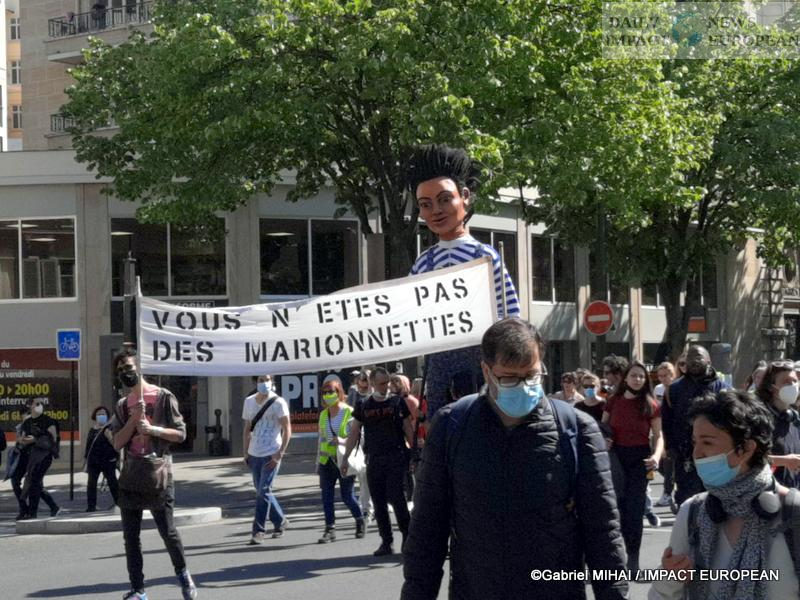
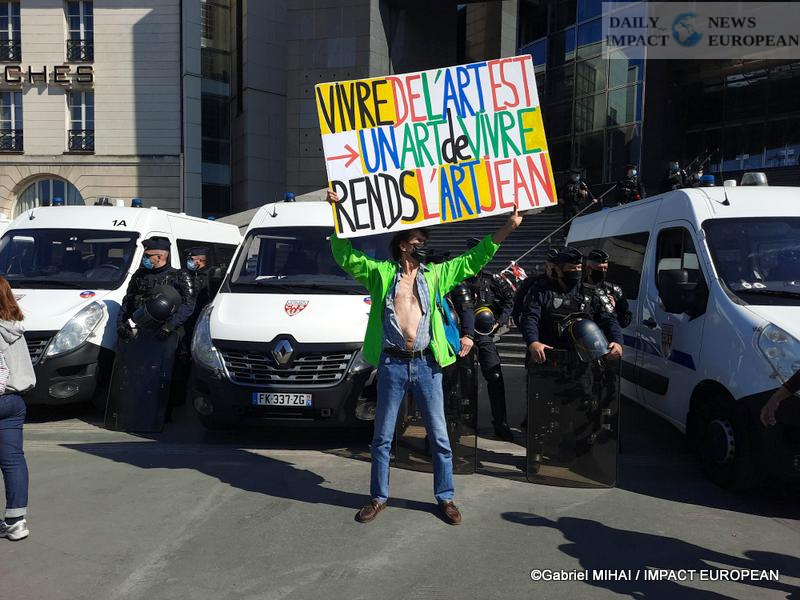
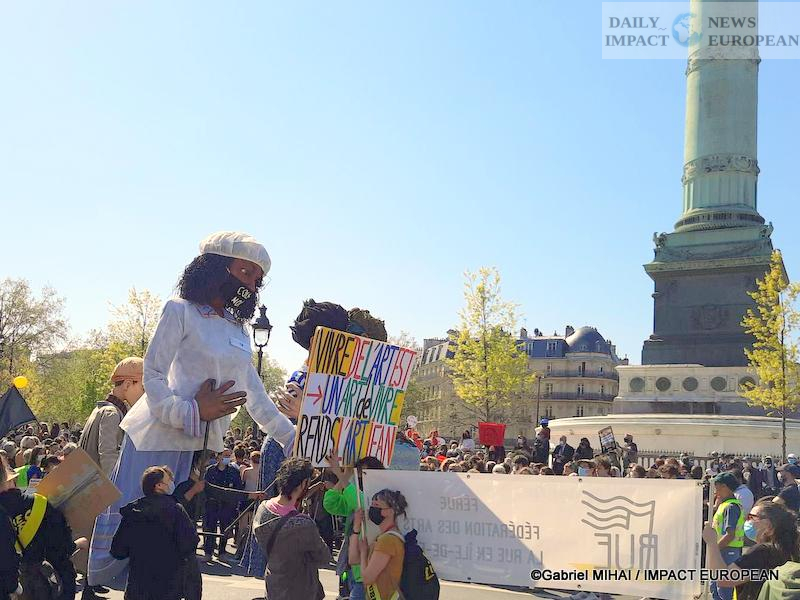
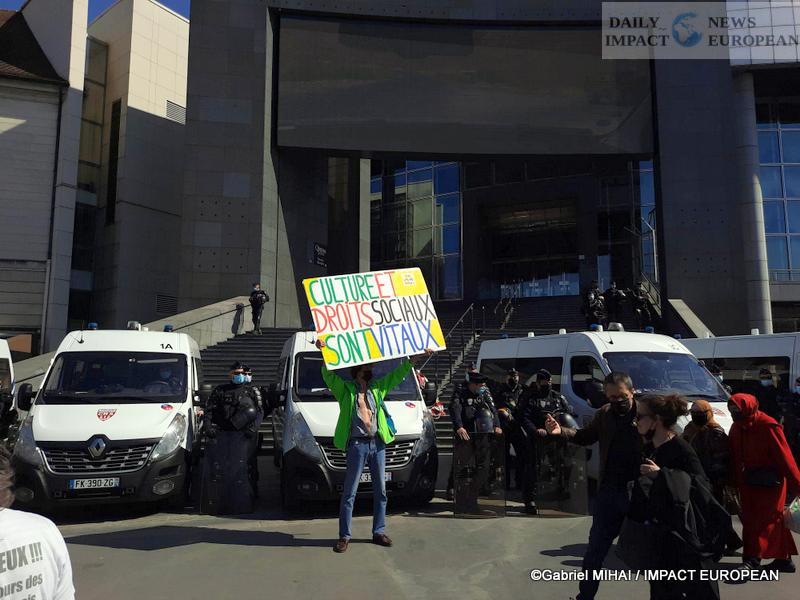
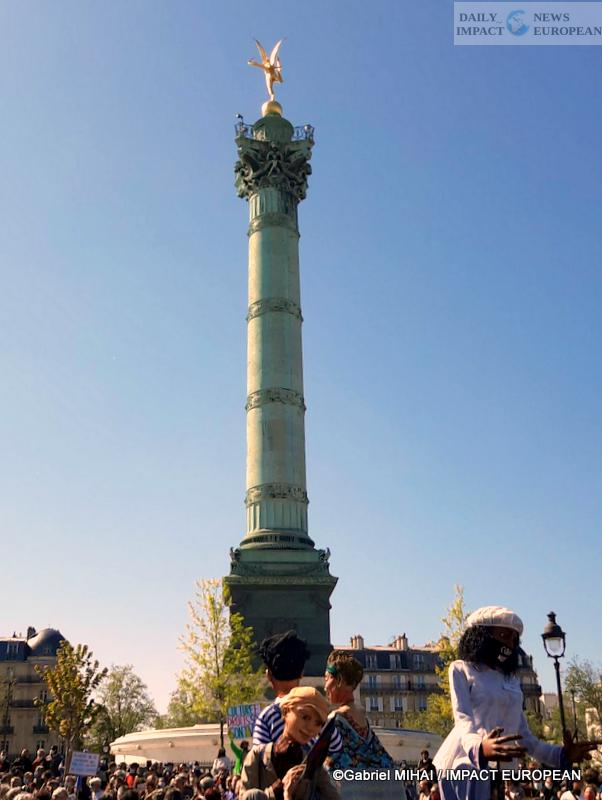
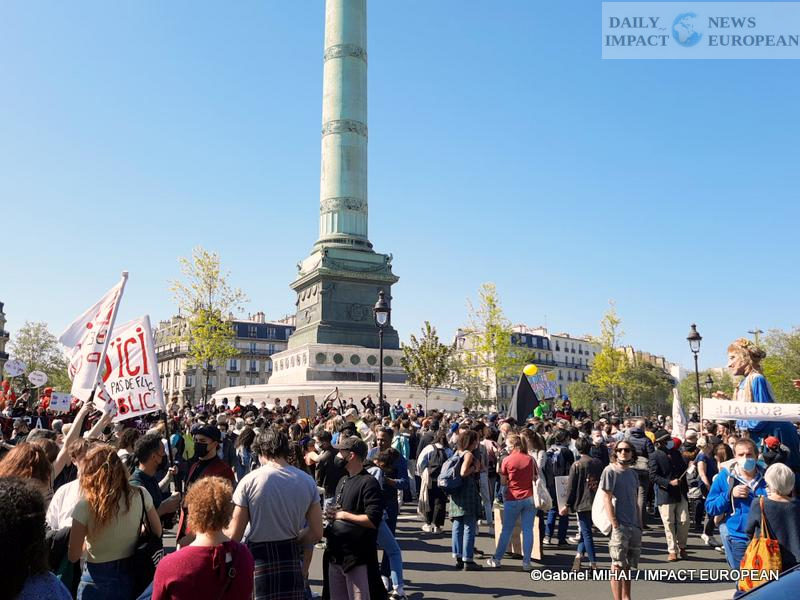

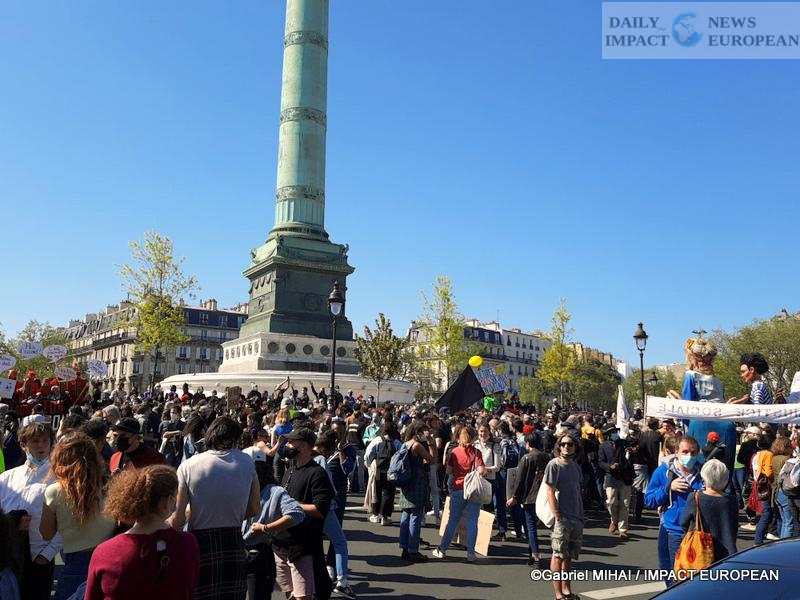
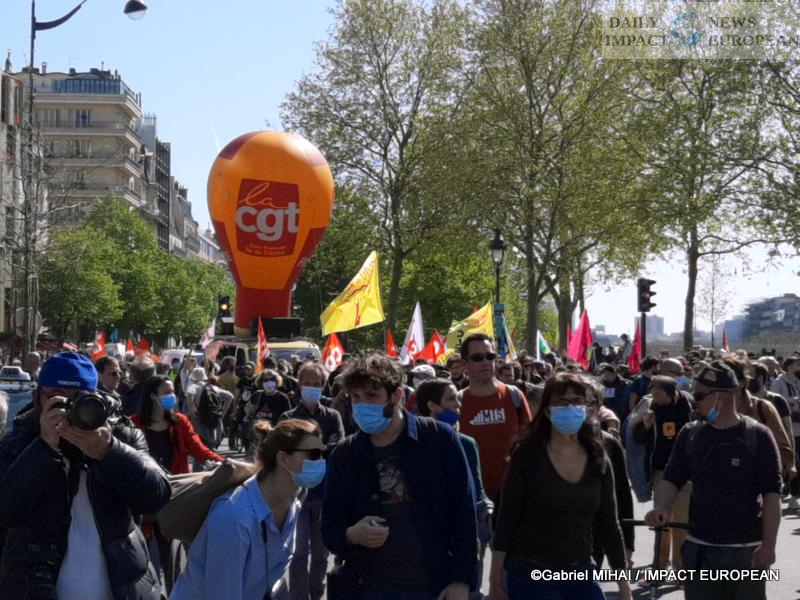
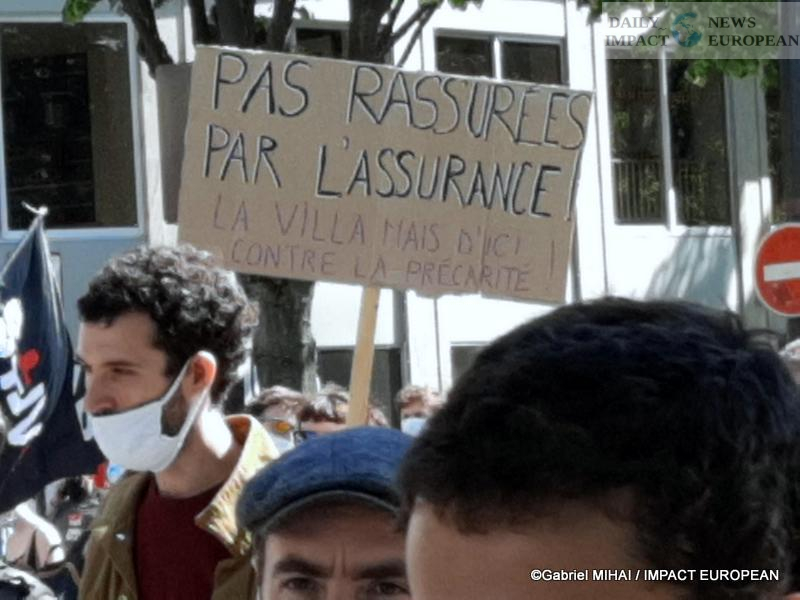
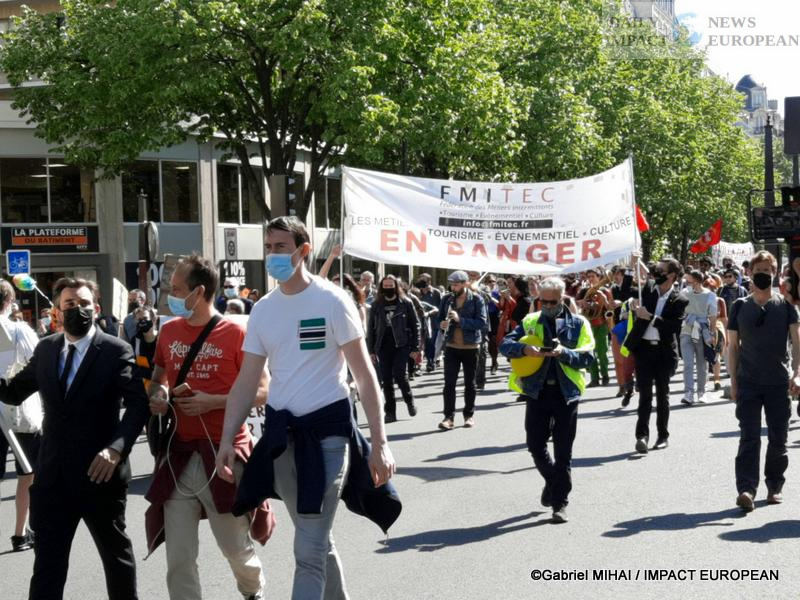
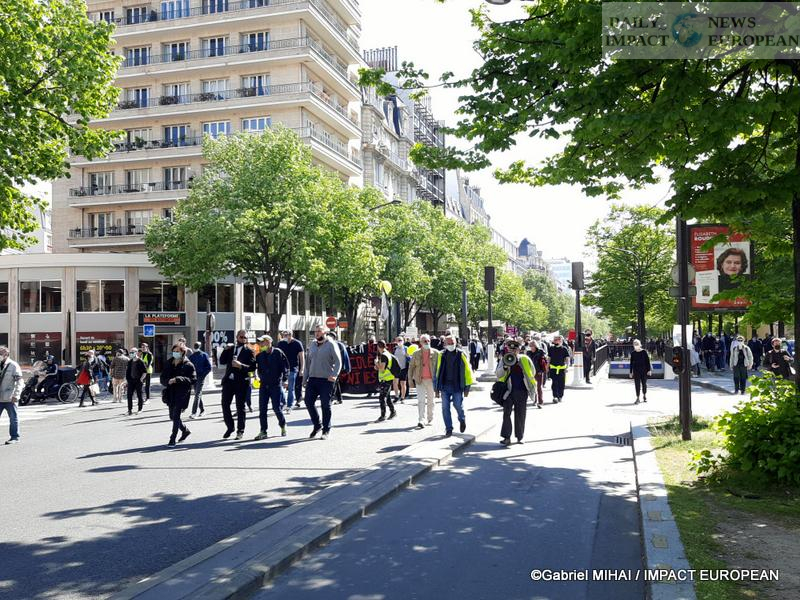
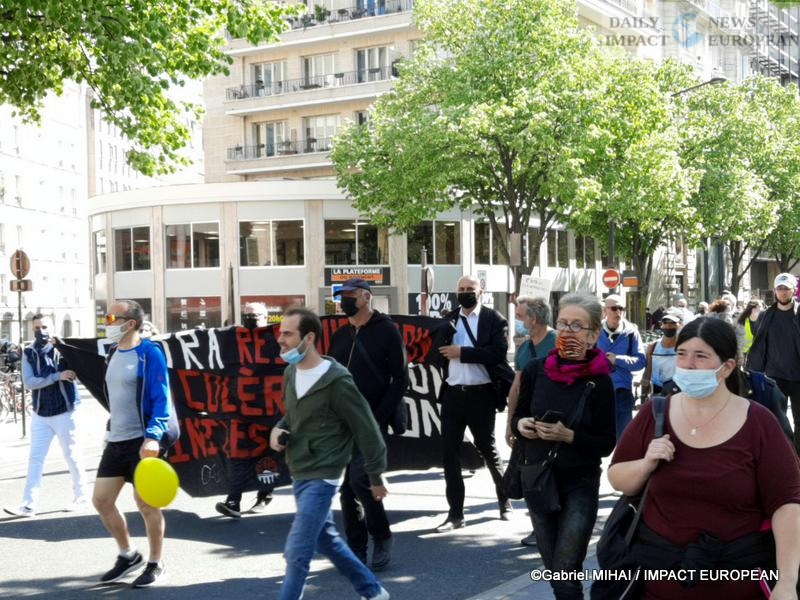
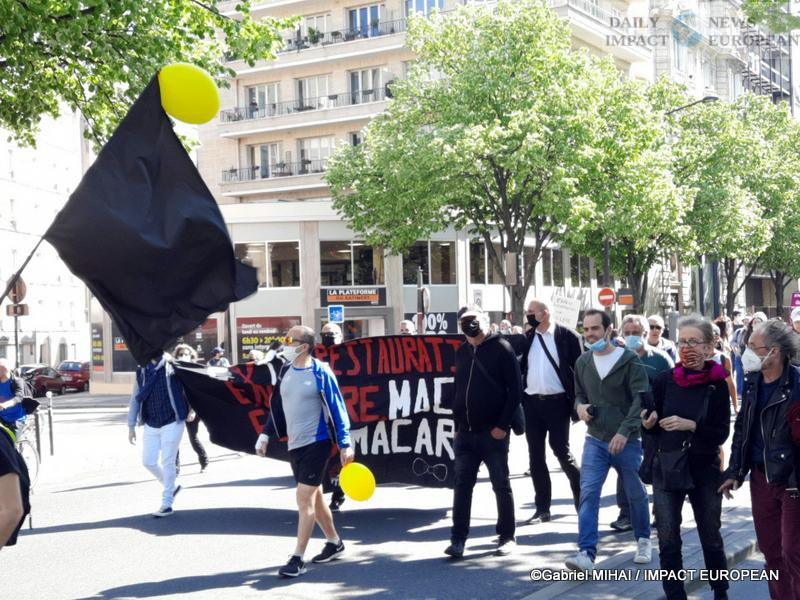
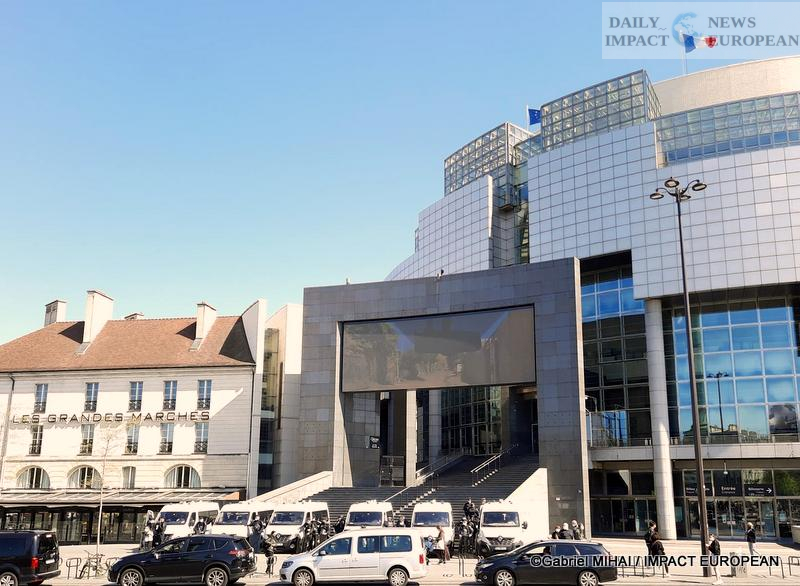
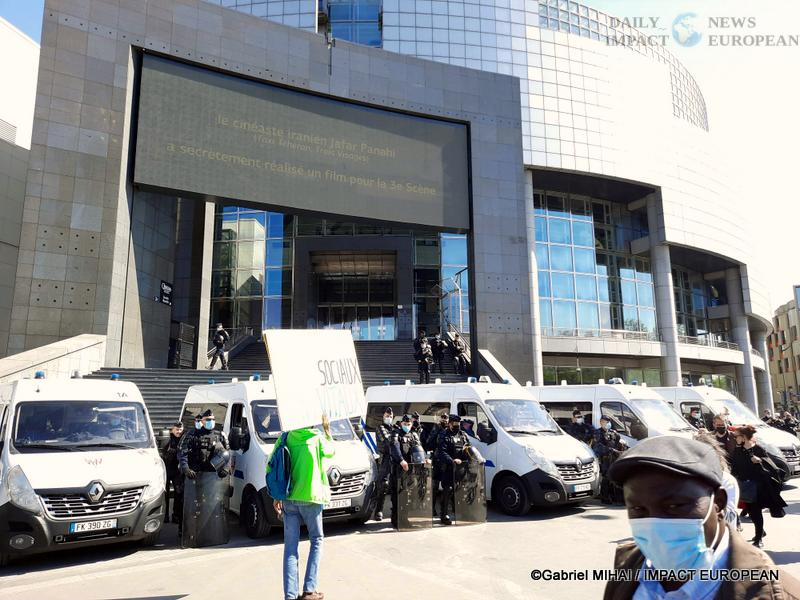
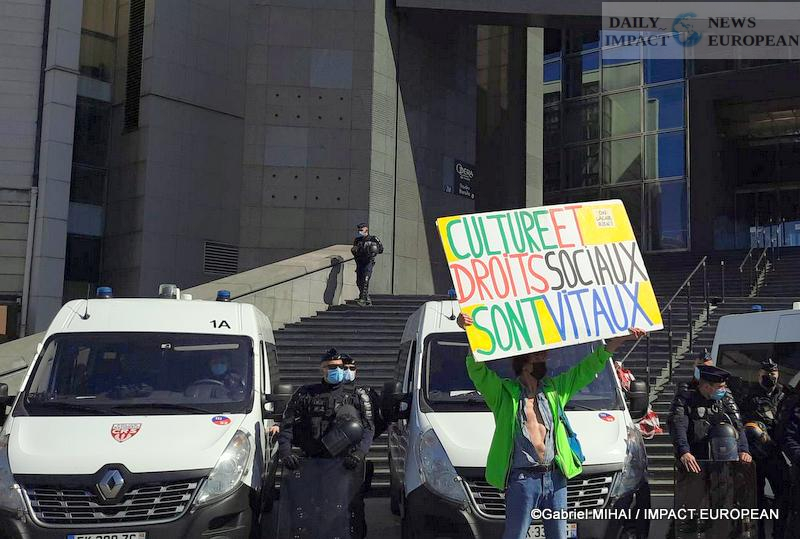
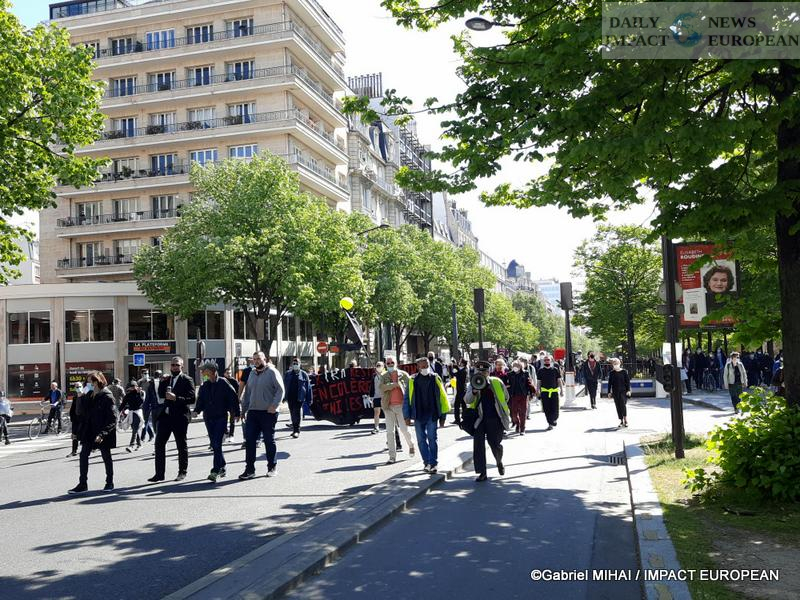
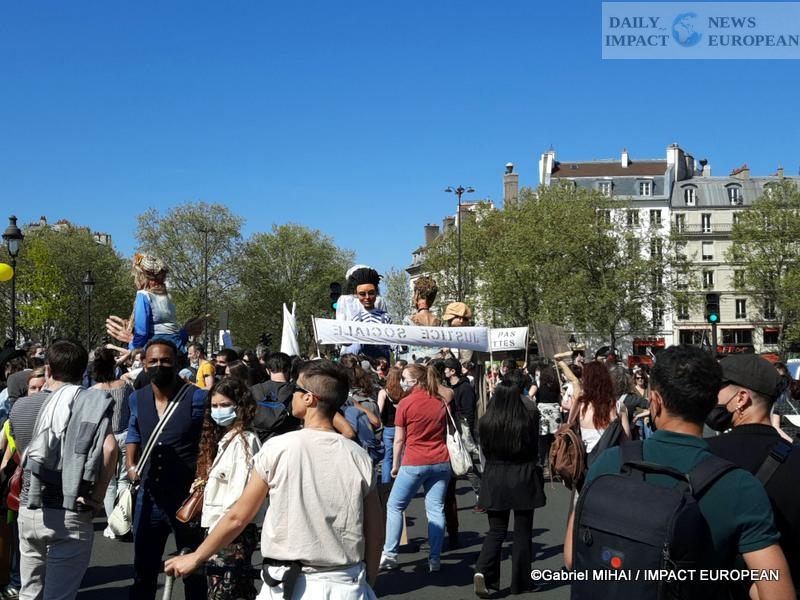
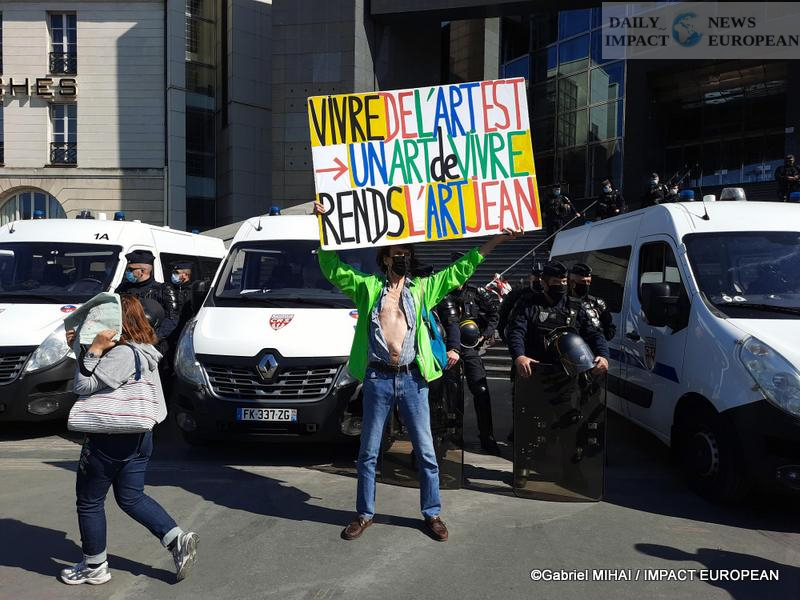

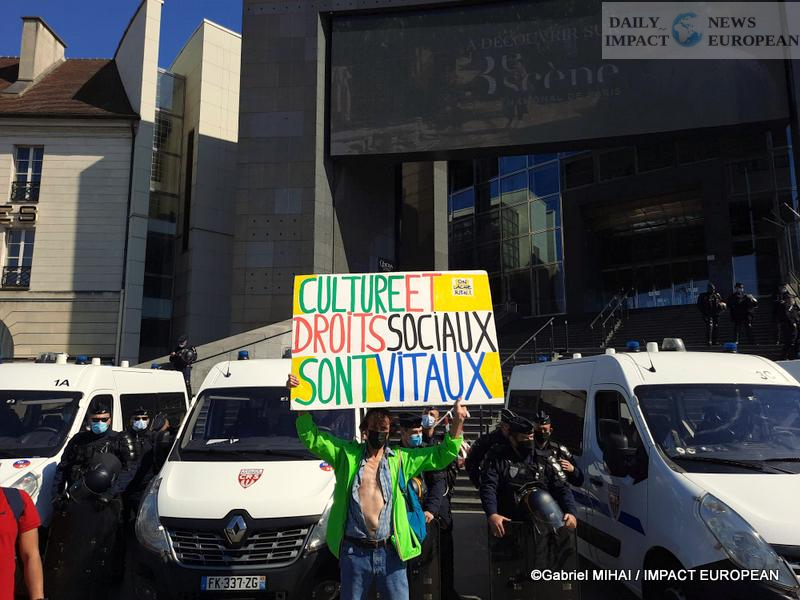
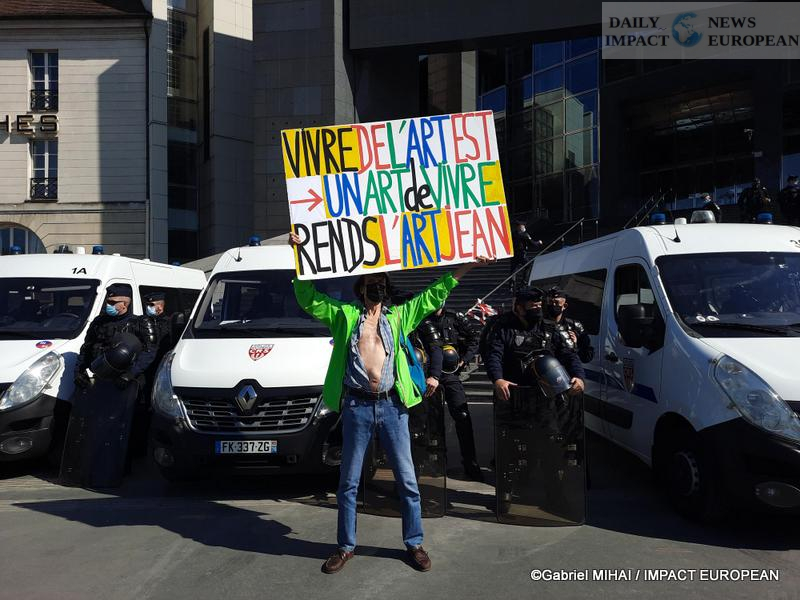
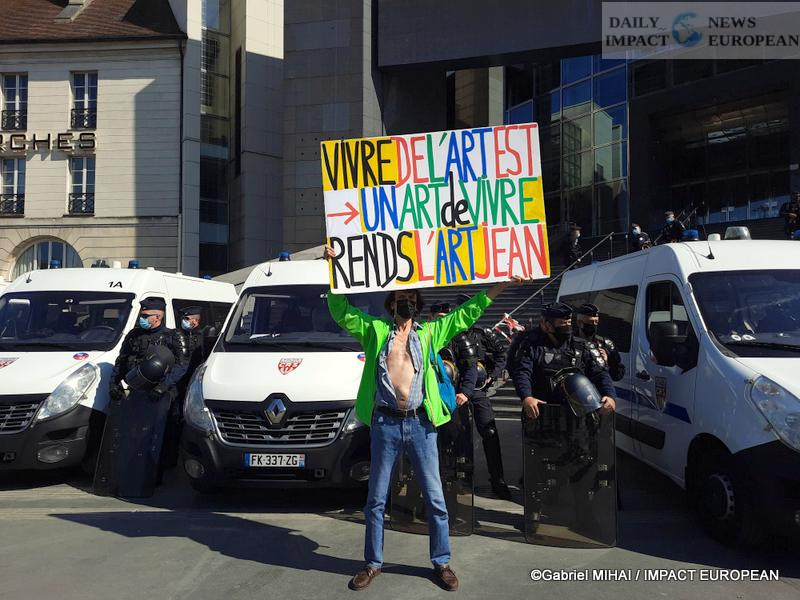
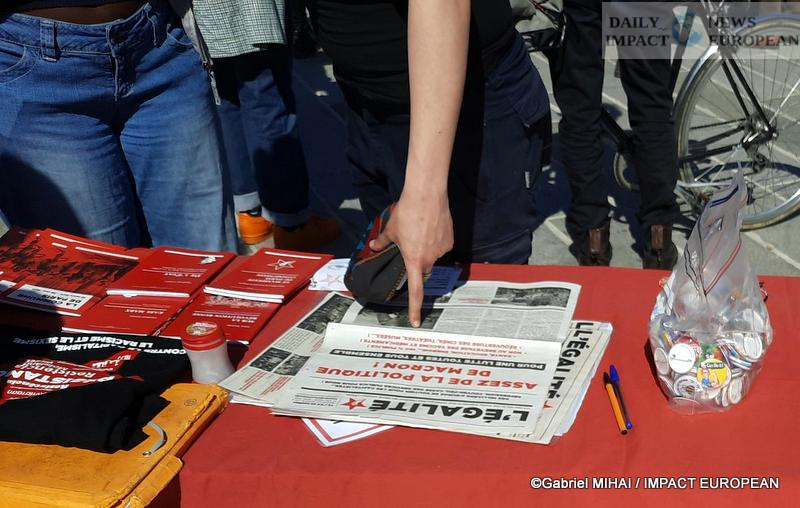
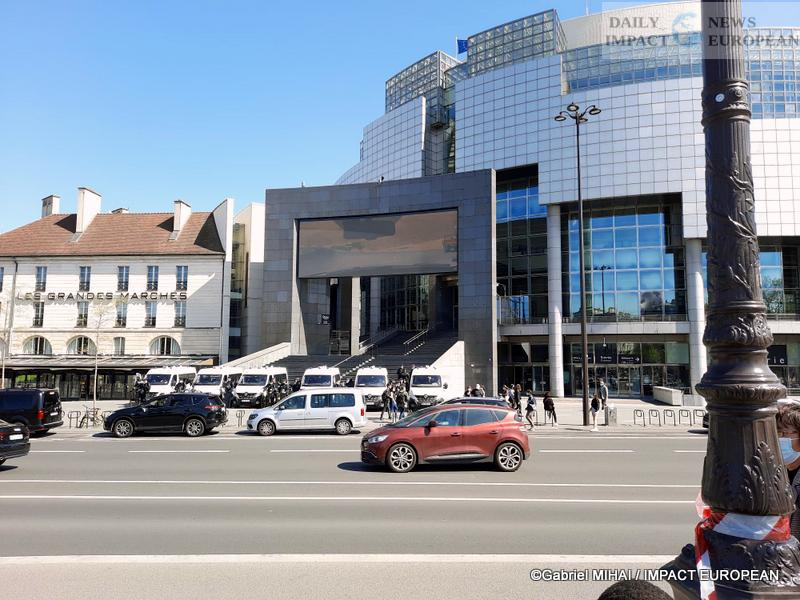
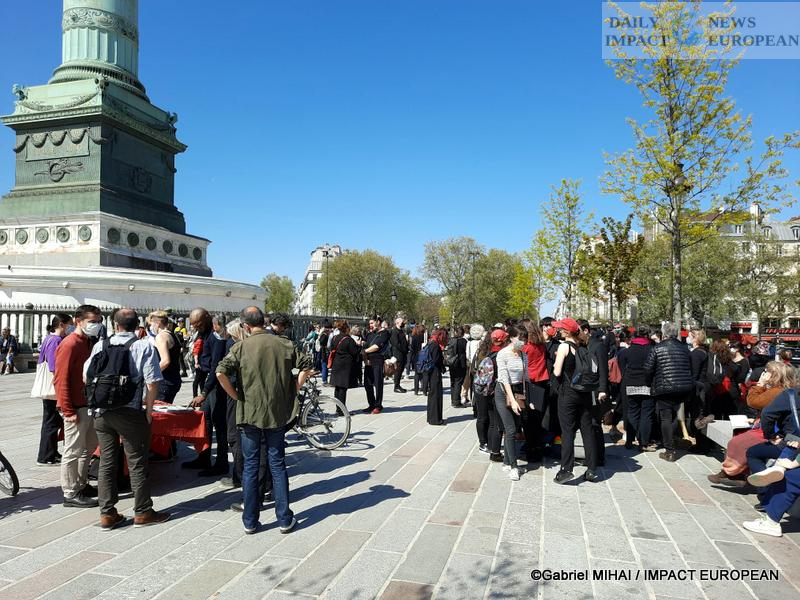
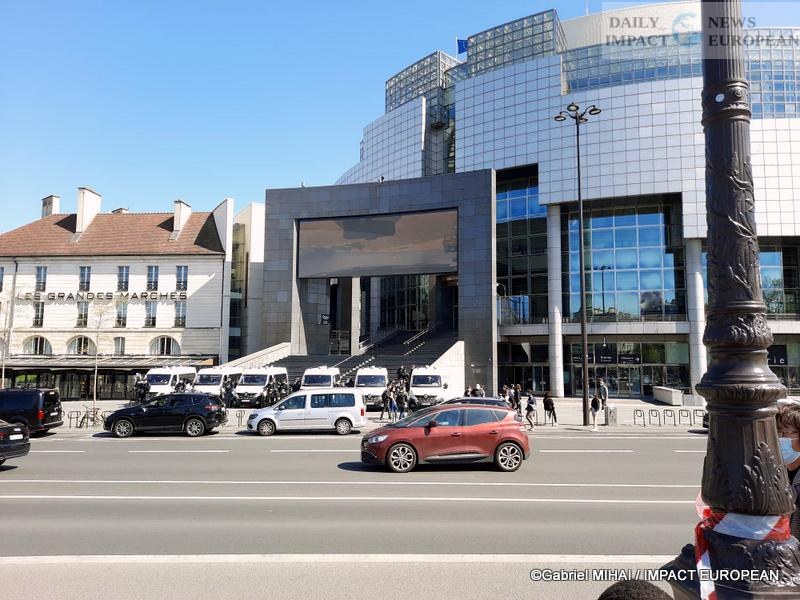
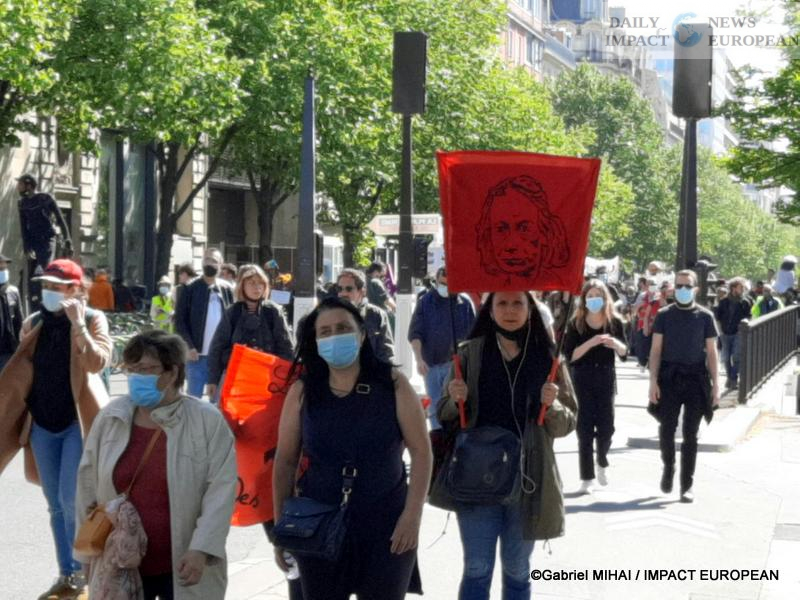
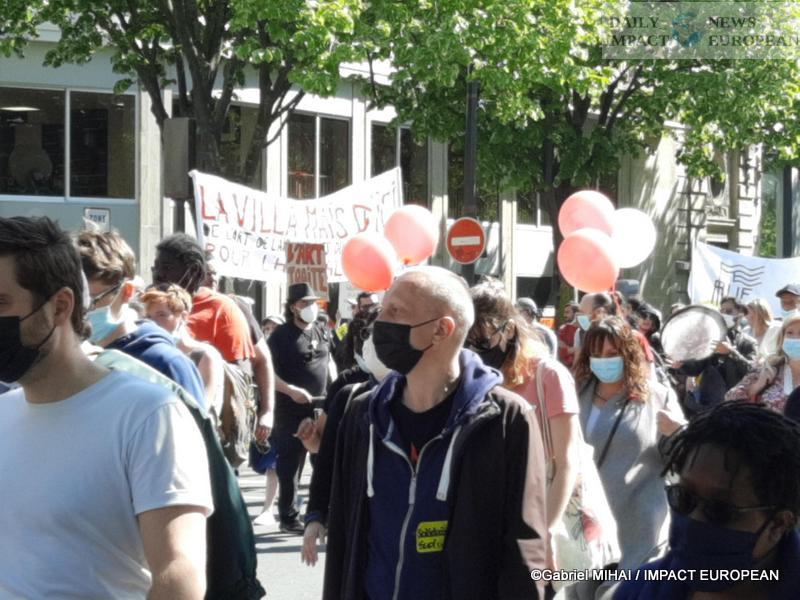
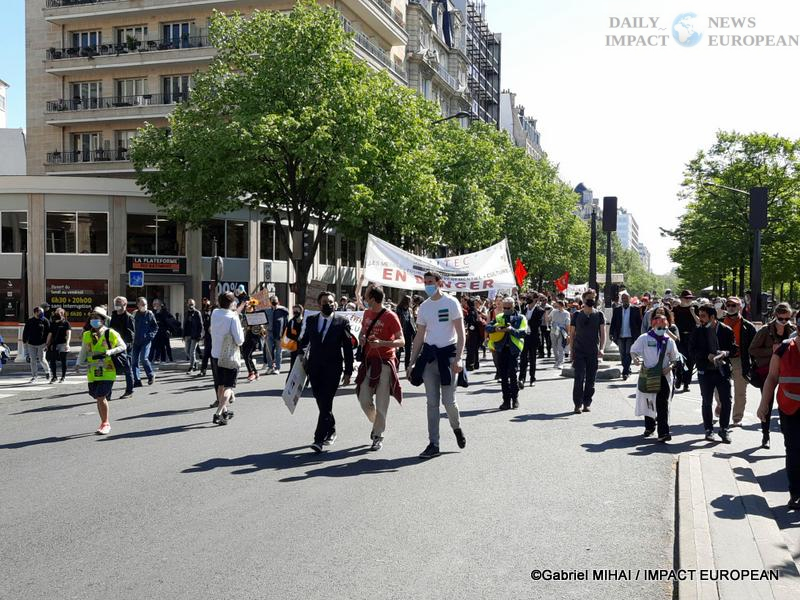
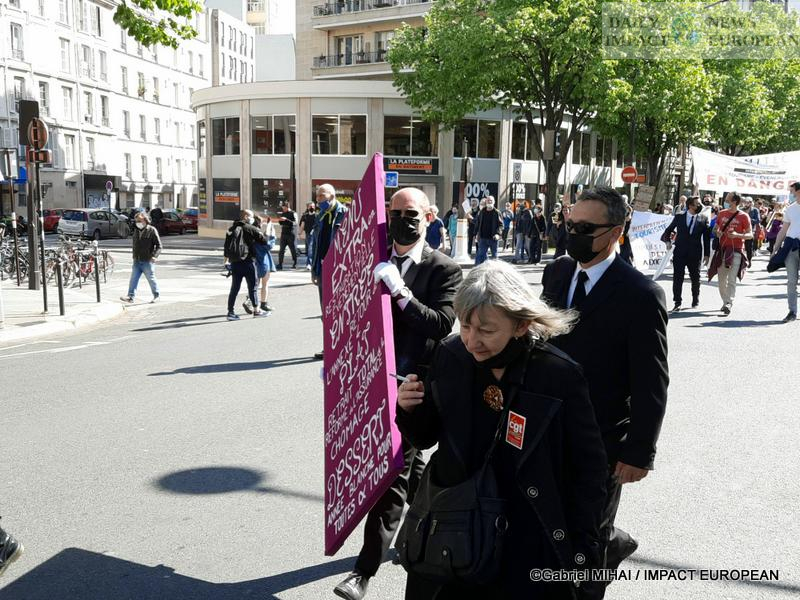
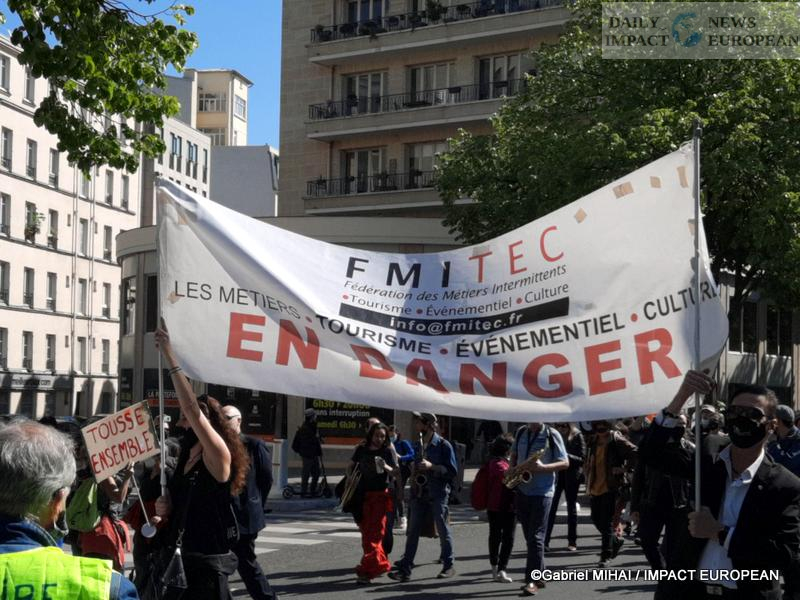
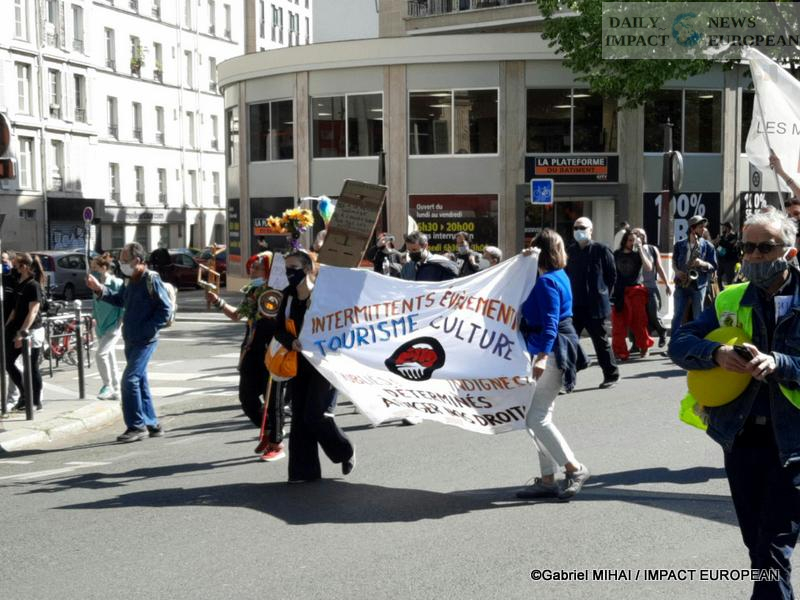
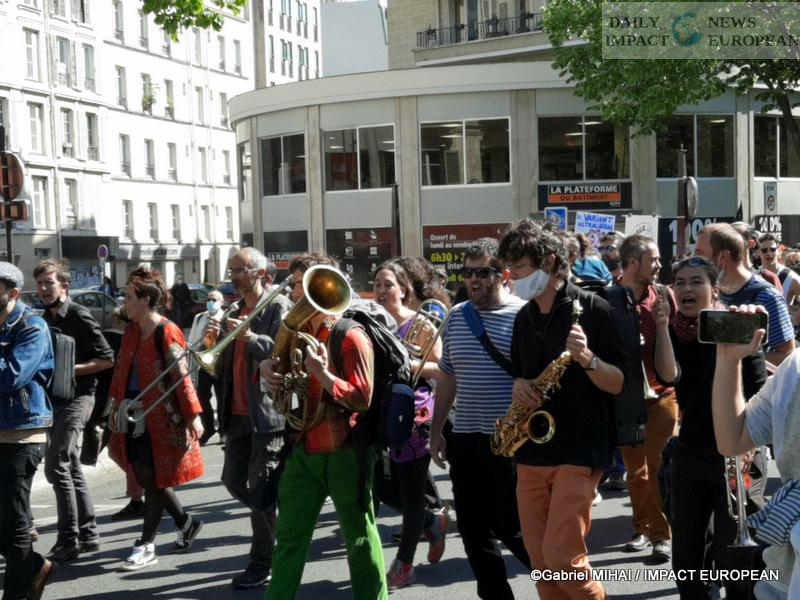
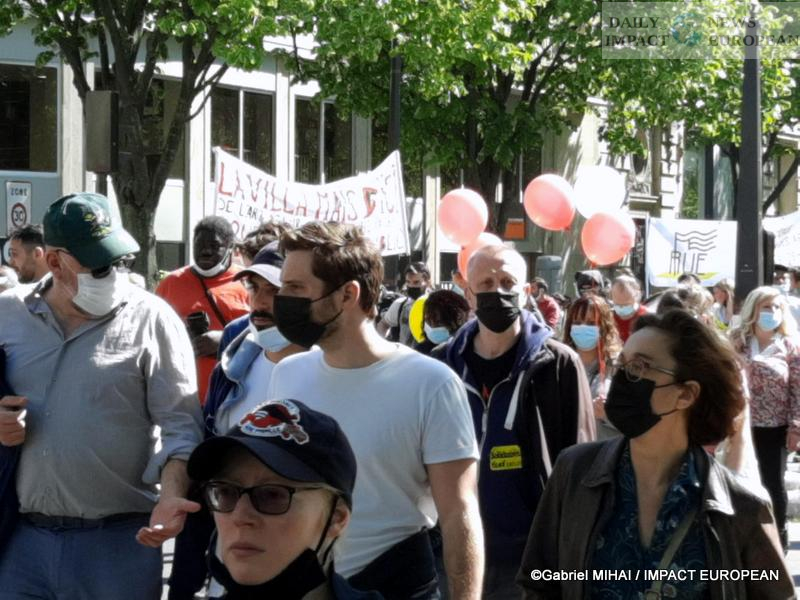
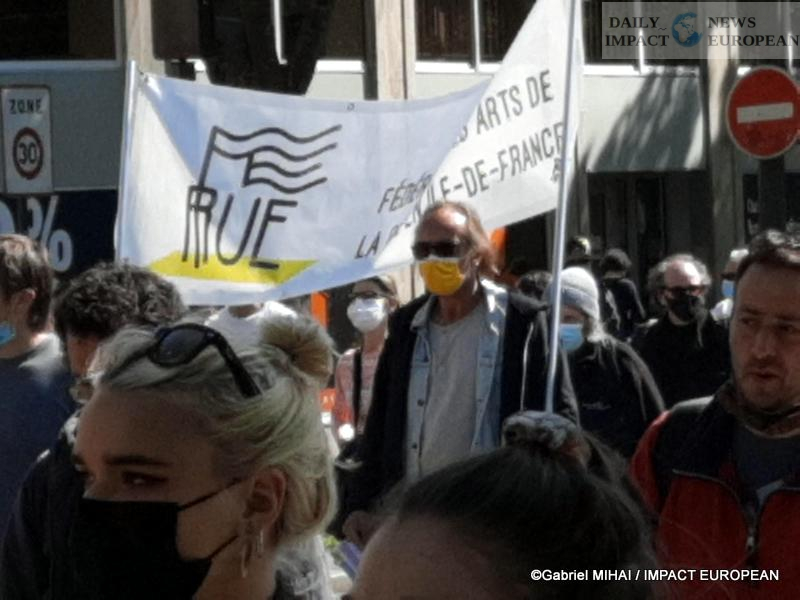
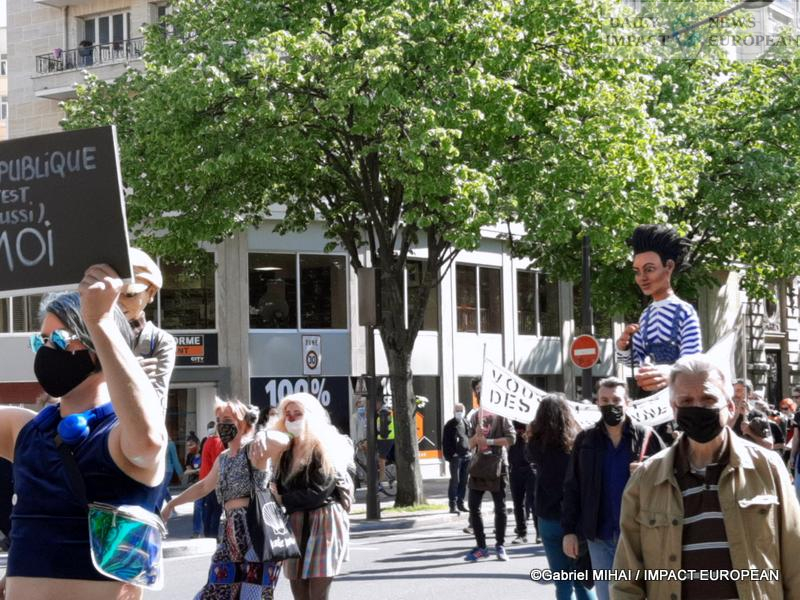
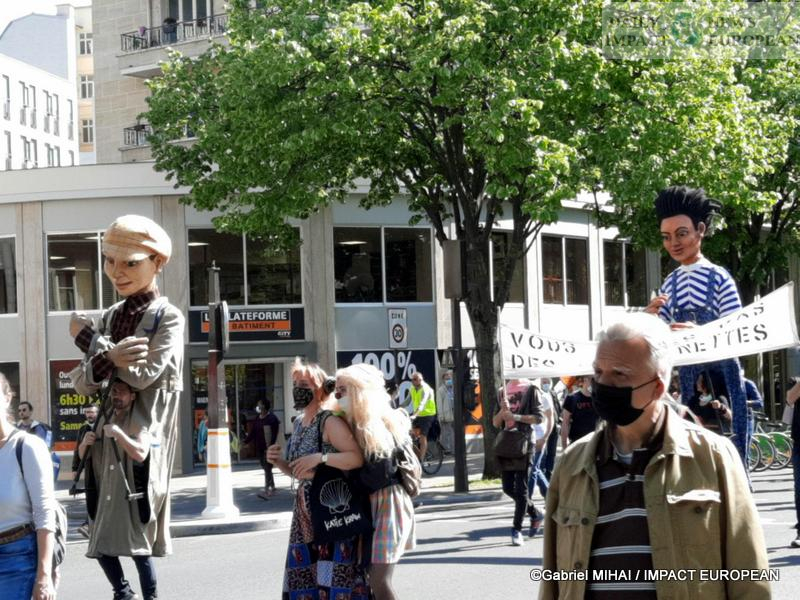
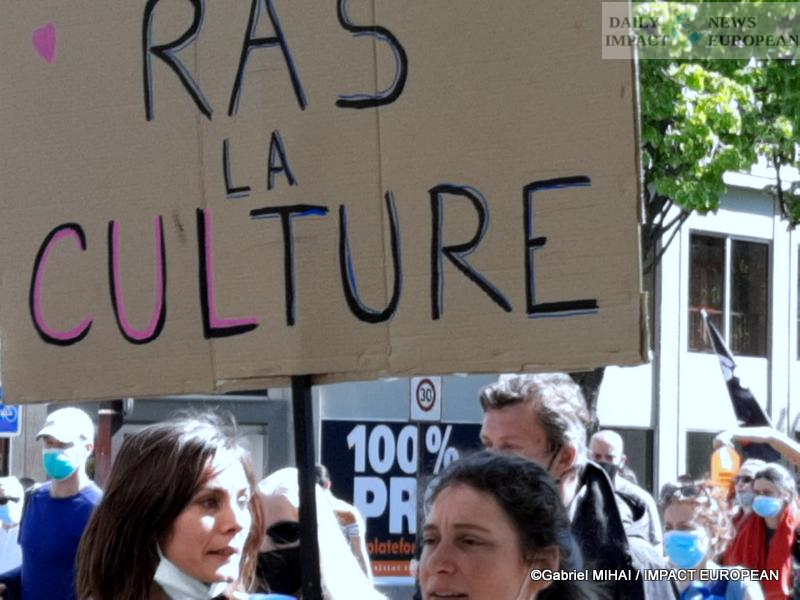
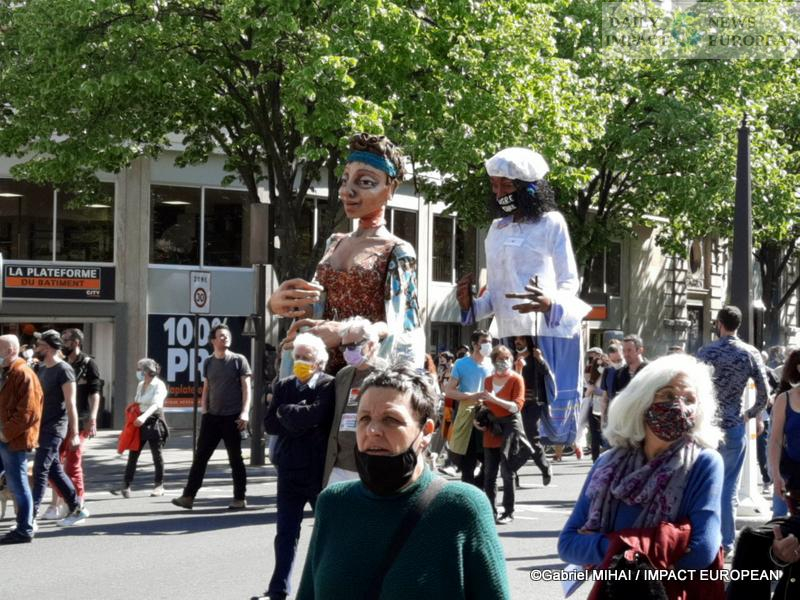
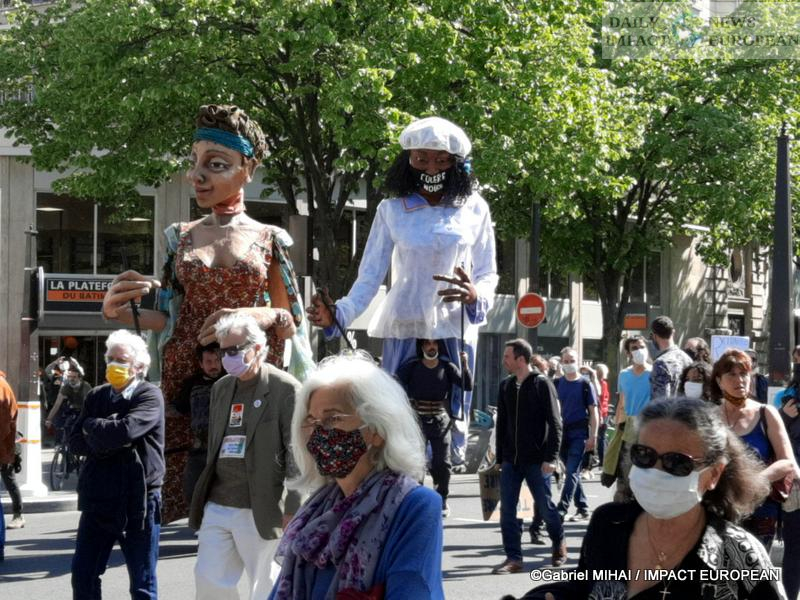
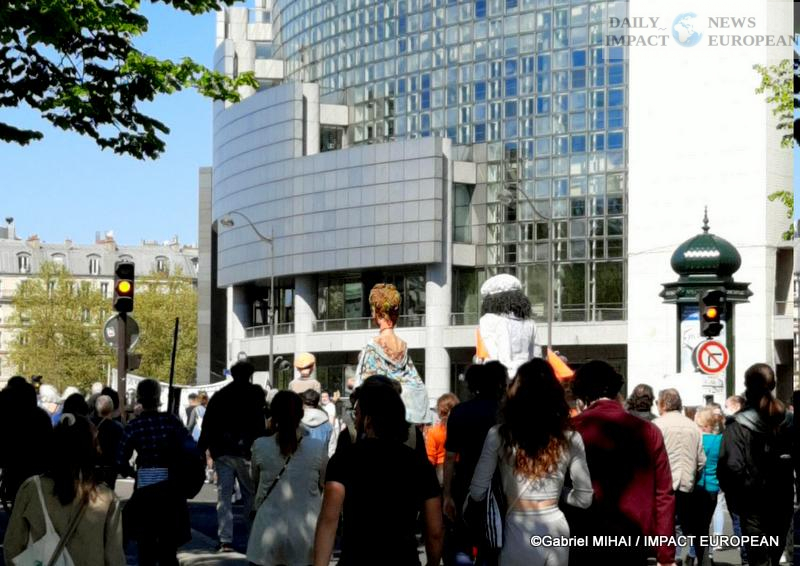
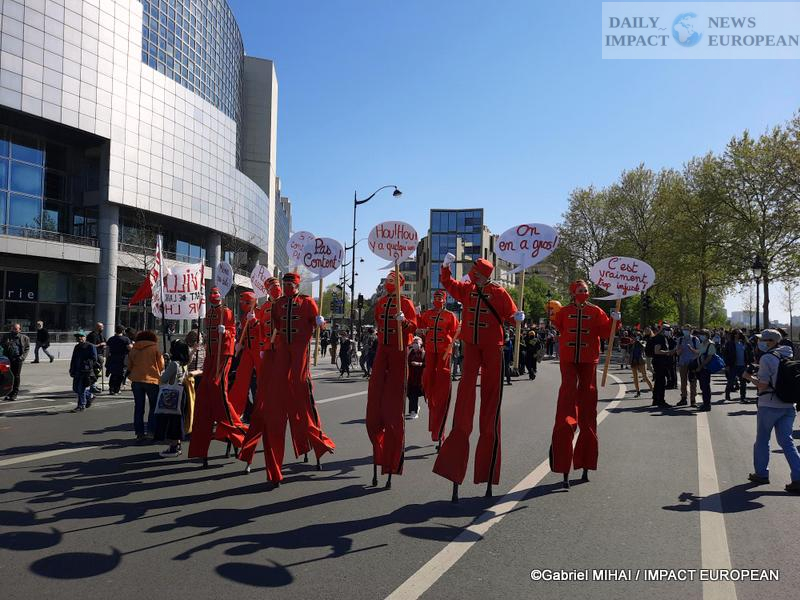
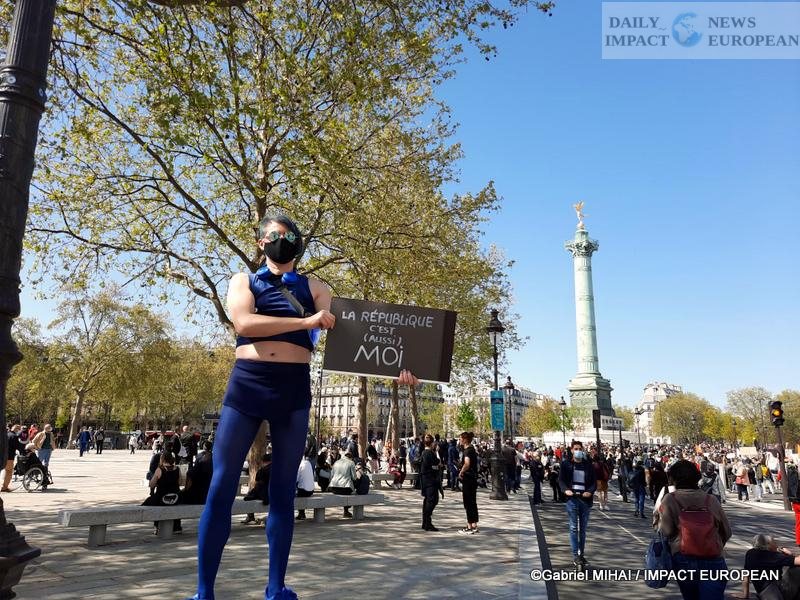
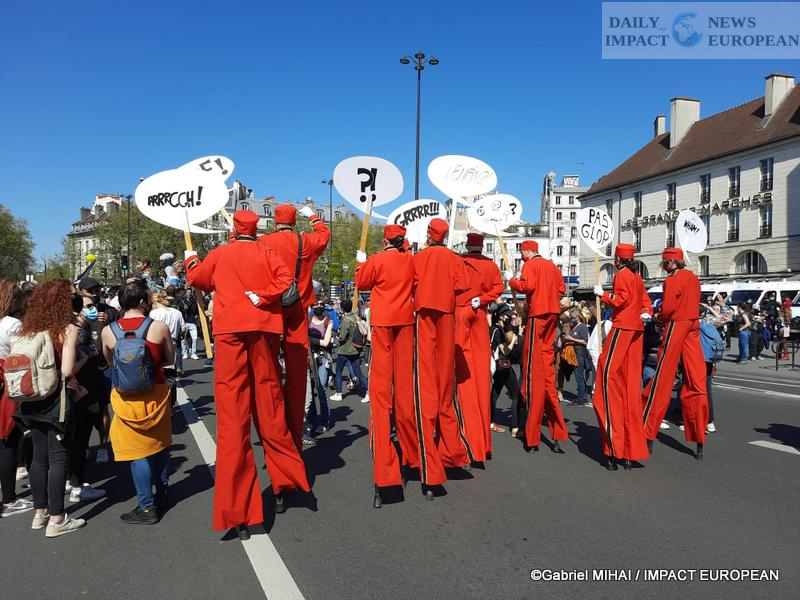
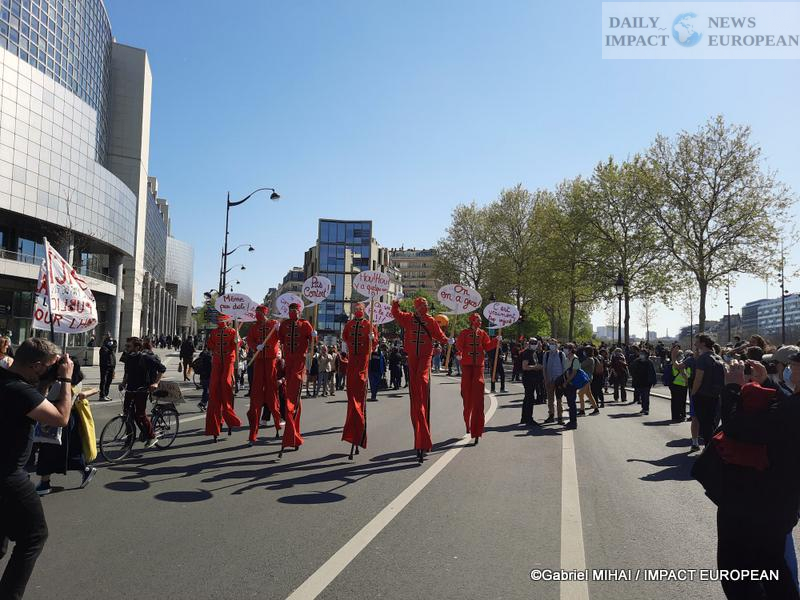
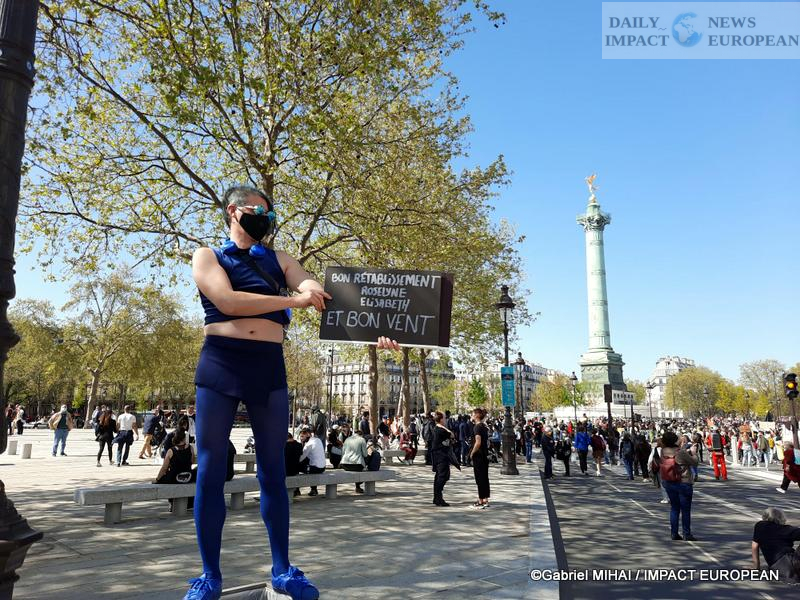
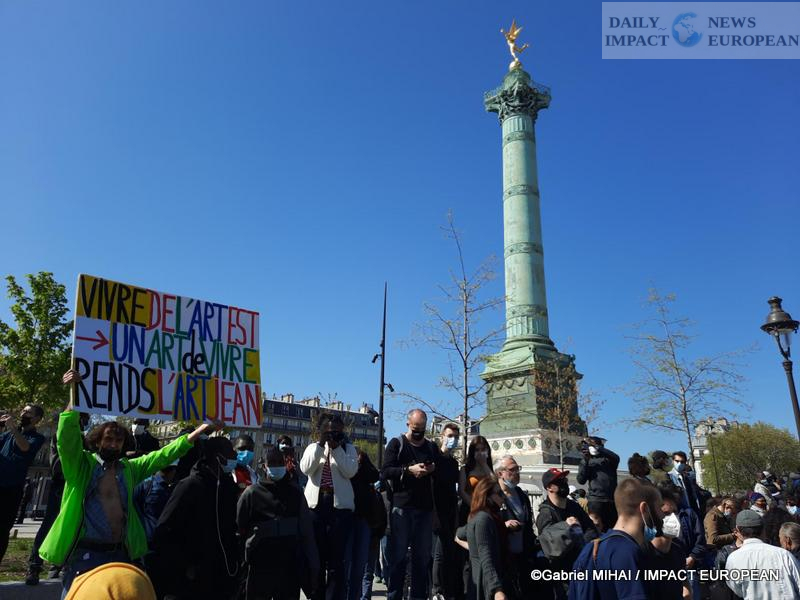
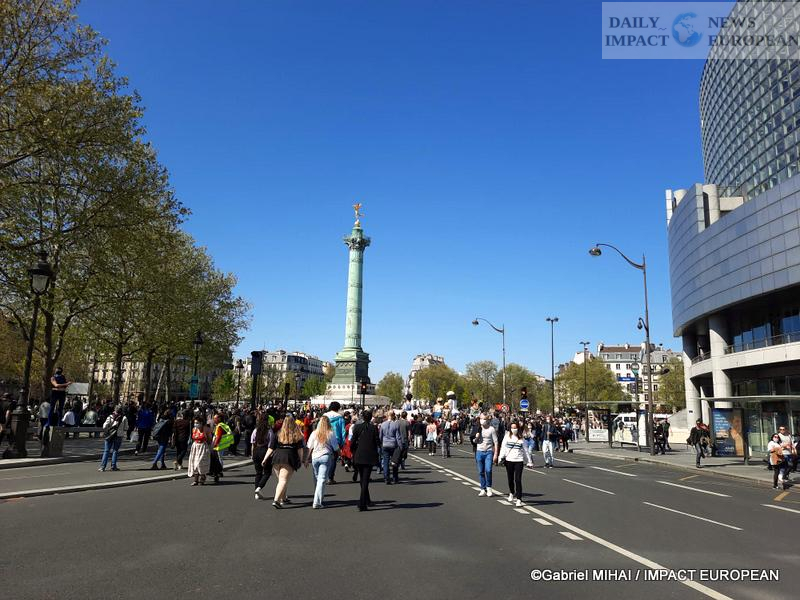
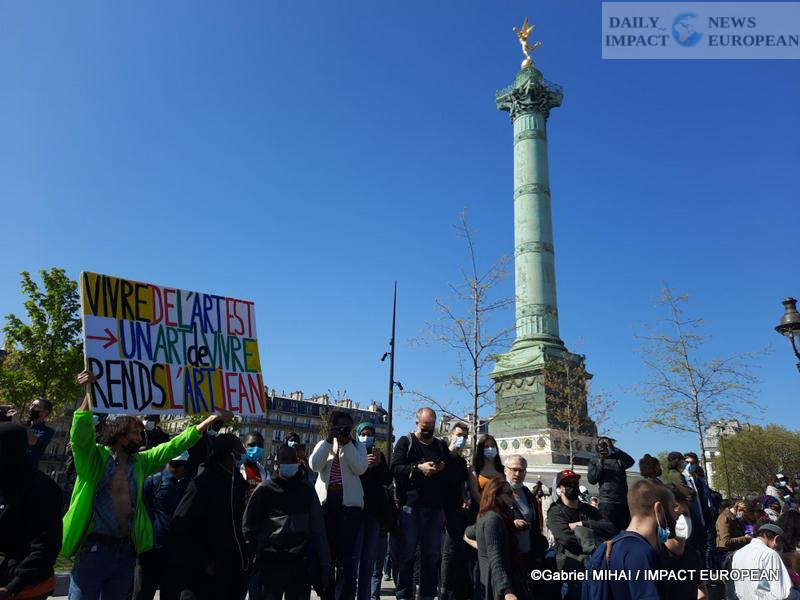
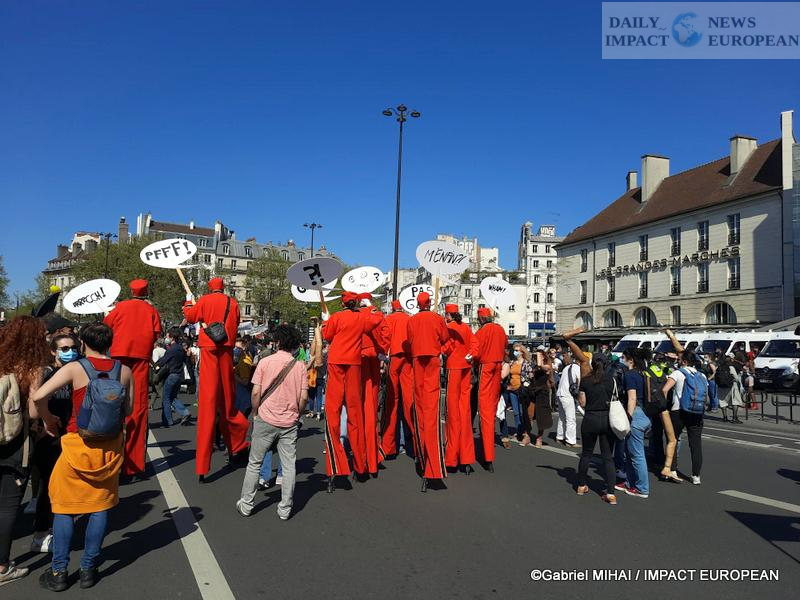
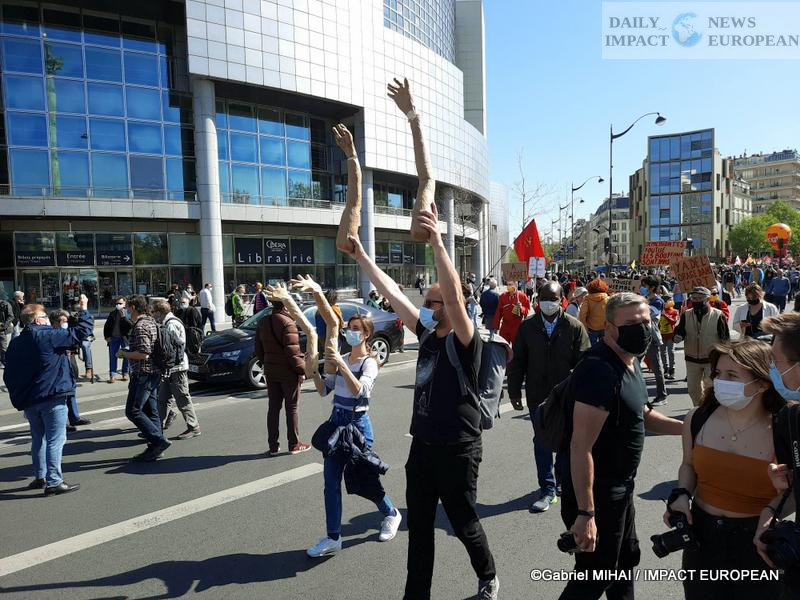
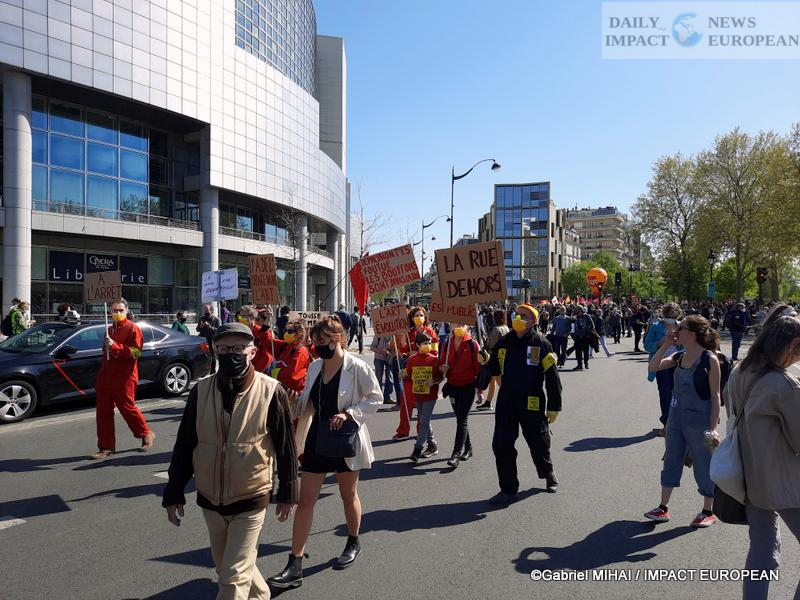
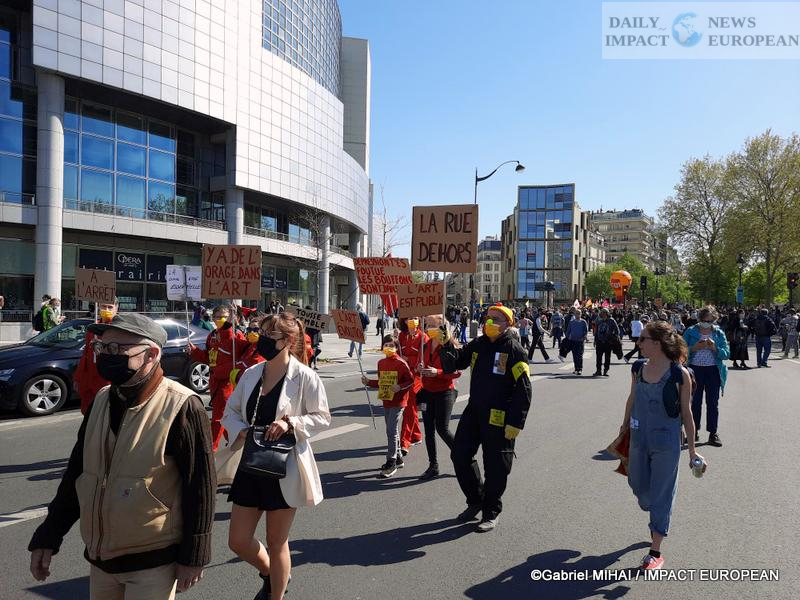
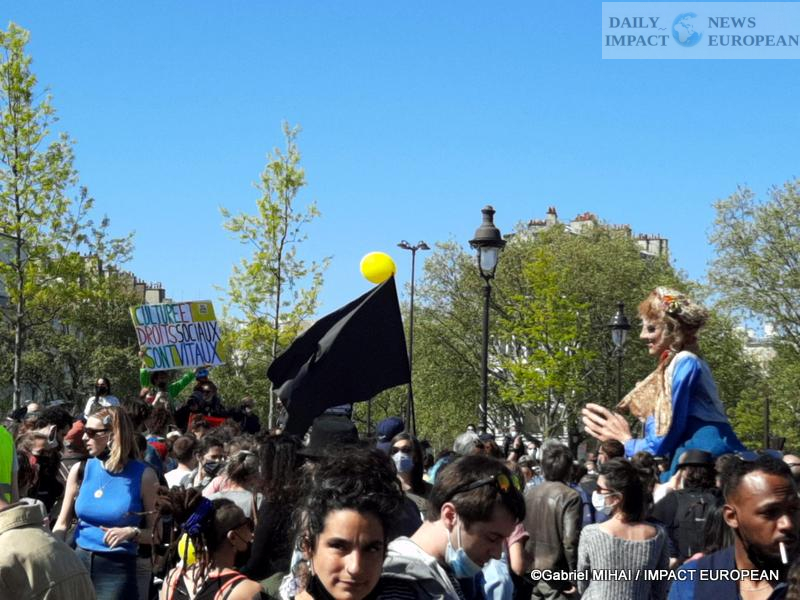
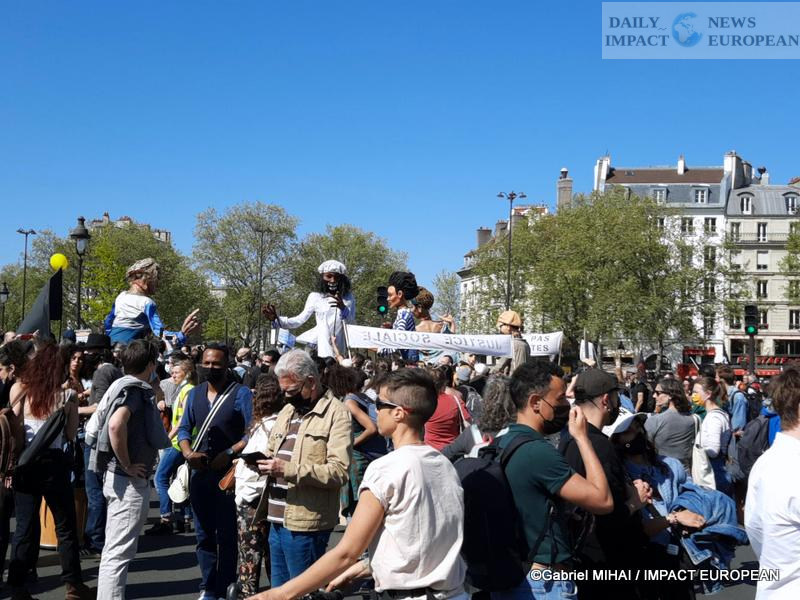
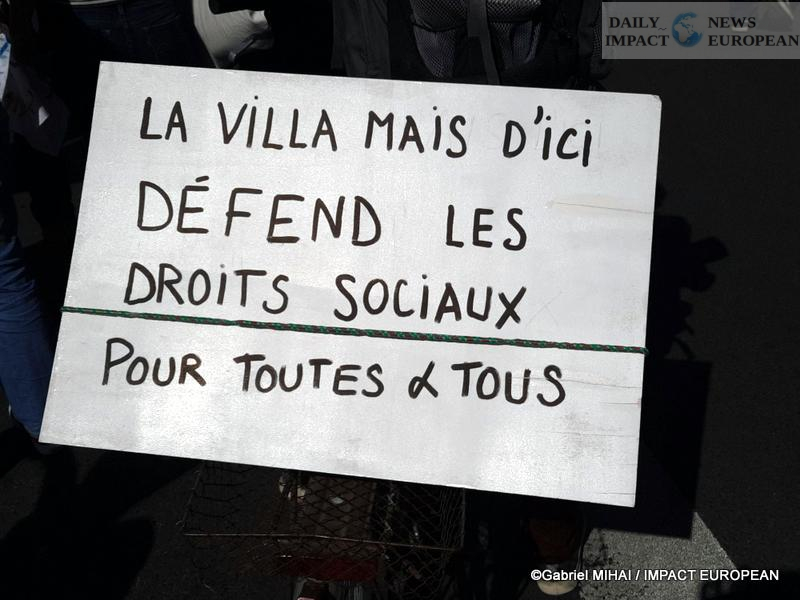
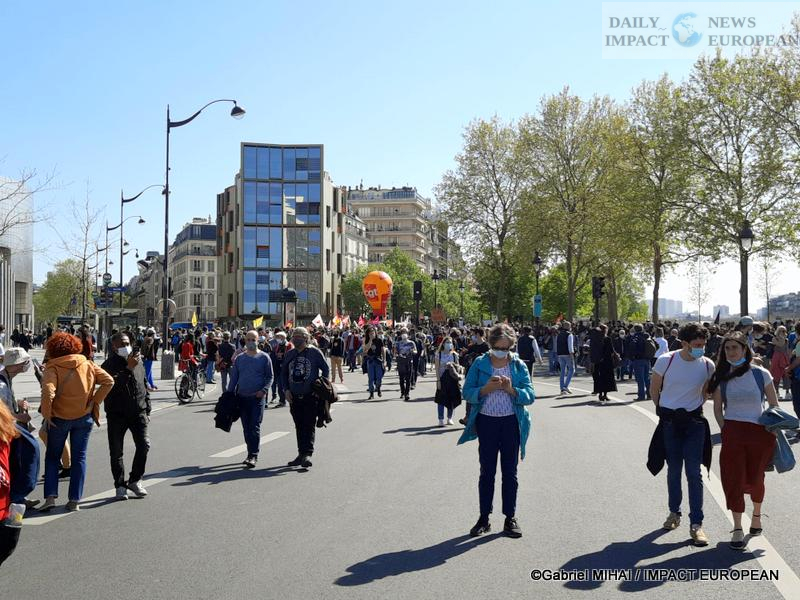
More Stories
METAL D’ALCOVE, the workshop of Eric KATZ, lighting sculptor in Montmartre
Paris Marathon 2024: Victory for Ethiopians at the Paris marathon
Gelsomina